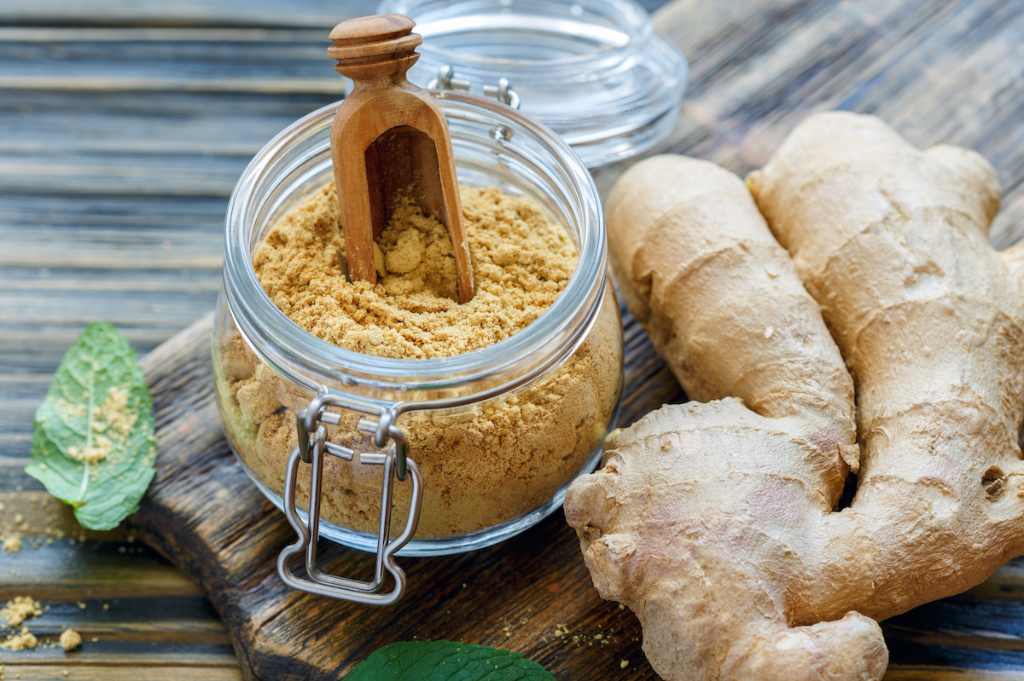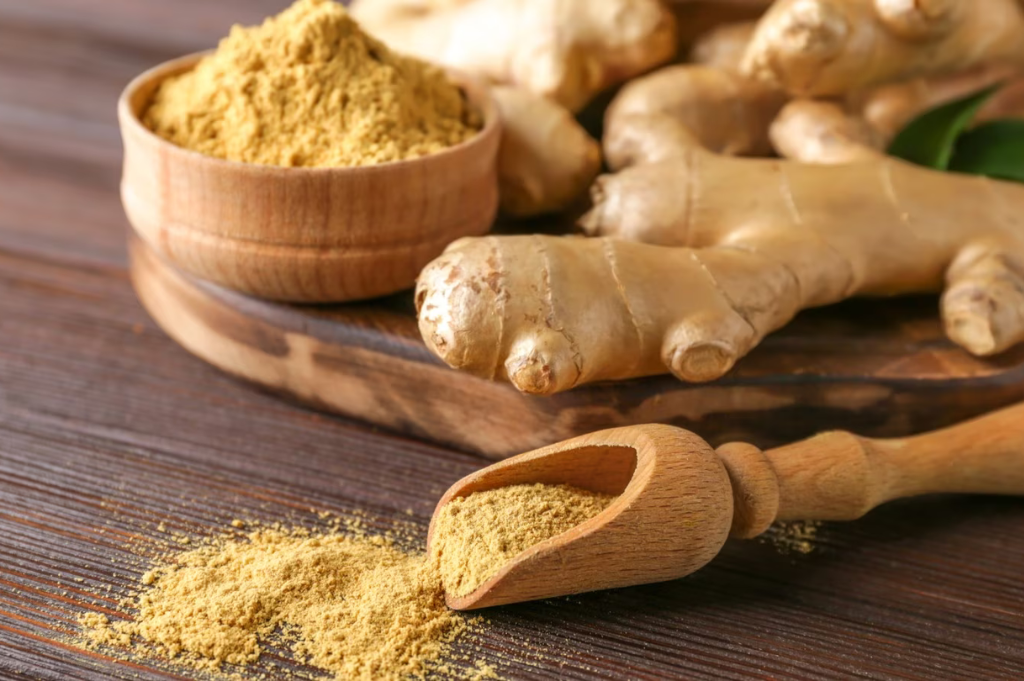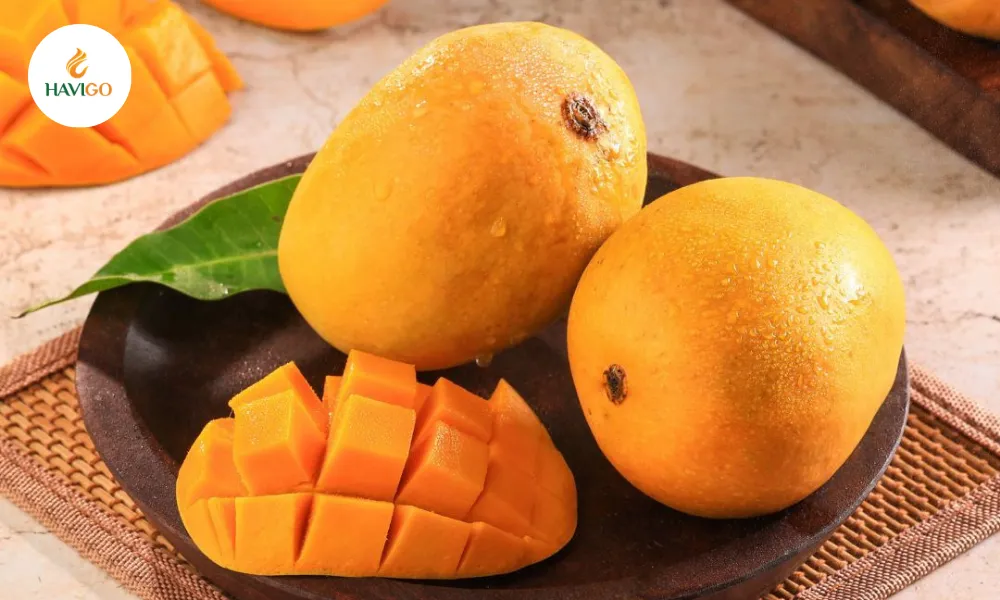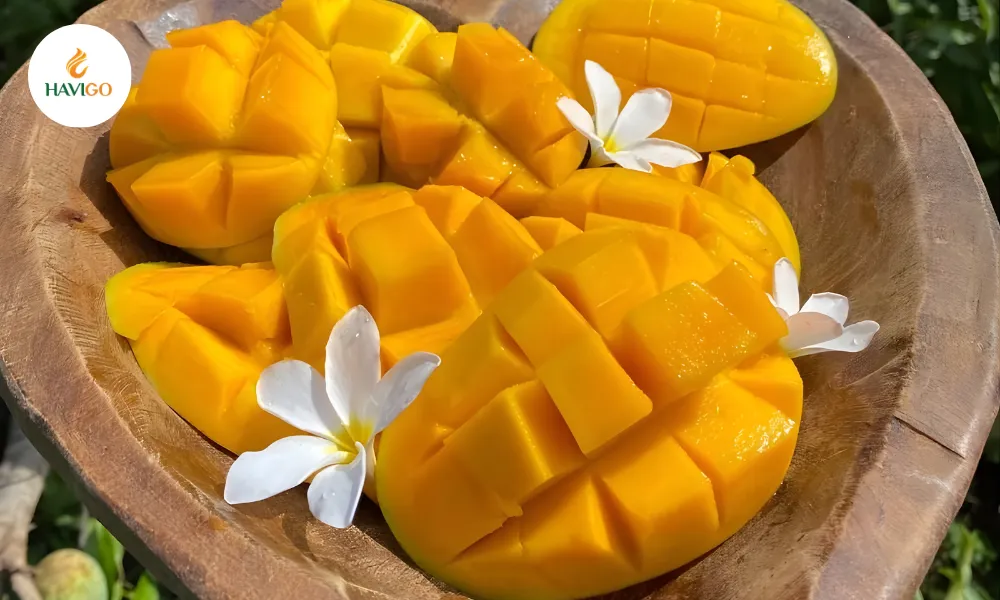Ginger is a versatile spice, familiar to global cuisine and traditional medicine for centuries. Ginger comes in two primary varieties: fresh and dried. Each has unique uses, nutritional qualities, and health advantages. Many people have the habit of drinking ginger tea. However, they may not know whether to drink fresh ginger or dried ginger is better. This post on the health benefits of fresh ginger vs. dried ginger will show you the answer based on Ayurveda’s view.
1. Health benefits of Fresh Ginger vs. Dried Ginger
When it comes to nutrition, fresh ginger has many health benefits thanks to its natural form and the active compound gingerol.
There are some nutritional differences between fresh and dried ginger, although each has distinct flavors and uses in cooking. The two types of ginger have different uses. Therefore, the particular dish and your culinary preferences will determine whether you use fresh or dried ginger.

Fresh Ginger
Because of its anti-inflammatory properties, fresh ginger can help with muscle soreness and arthritis symptoms. It is high in vitamin C and antioxidants, which strengthen the immune system. People also use it to treat pregnancy-related morning sickness.
People use fresh ginger as a base ingredient in many recipes because of its strong flavor. We can mention people use ginger in savory and sweet dishes, in stews, stir-fries, stir-fries, curries, soups, and marinades. People can also grate or slice fresh ginger to enhance the flavor of tea, smoothies, or lemonade. Additionally, add fresh ginger to baked goods to add a little warmth and spice.
Nutrients per 1/4 cup serving of sliced fresh ginger:
- Carbohydrates: 4 g
- Fiber: Less than 1 g
- Sugar: Less than 1 g
- Calories: 19
- Protein: Less than 1 g
- Fat: Less than 1 g
Dried Ginger
During the drying process, dried ginger may lose some of its nutrients. However, dried ginger still has a lot of health benefits. For example, assisting in the reduction of inflammatory diseases like osteoarthritis. Dried ginger contains compounds that may help prevent infections and stop the growth of dangerous bacteria. According to some studies, dried ginger may help lower blood sugar. Dried ginger has the same potential to alleviate motion sickness and nausea as fresh ginger.
People often use dried ginger in powdered form. In essence, it is dehydrated fresh ginger that has been finely powdered. This process transforms dried ginger into a concentrated spice and alters its flavor. People often use dried ginger in the cold winter because of its warming properties. Additionally, some dishes contain this spice to help warm the body.
One teaspoon of dried ginger contains:
- Carbohydrates: 1 g
- Fiber: Less than 1 g
- Sugar: Less than 1 g
- Calories: 6
- Protein: Less than 1 g
- Fat: Less than 1 g
2. Ayurveda’s view on Fresh Ginger vs. Dried Ginger
In India, Ayurveda was created more than 5,000 years ago. It is still widely used today and is among the world’s oldest medical practices. Ginger not only improves the taste and flavor of food but people also use ginger in Ayurveda to treat digestive disorders, colds and coughs. Fresh and dried ginger have different properties according to Ayurveda ancient medicinal methods.

Ayurveda suggests that mixing dry ginger powder with water should be suitable for treating flatulence and bloating rather than fresh ginger tea. The reason is fresh ginger tea increases Vata while dry ginger tea helps in balancing it.
So what is Vata? According to Ayurveda – Vata means blowing or moving like wind. Containing elements like air and space, Vata governs all movements in the mind and body. It controls blood flow, waste elimination, breathing and movement of thoughts through the brain. It is essential to keep Vata in a good balance.
Which is better to drink?
According to Ayurveda, chewing or drinking fresh ginger tea is not as good as drinking dry ginger water to treat flatulence and bloating. In addition, Ayurveda also suggests that dry ginger is better than fresh ginger when treating certain disorders.
Relieves constipation
Dry ginger is a mild laxative and is very good for constipation. Drinking a cup of dry ginger water can help to have an easy bowel movement.
Reduces mucus
Dried ginger water is very effective in treating seasonal flu, colds, and coughs. It’s also useful for most upper respiratory tract disorders. The easiest way to use dried ginger is to boil 2 cups of water with 1 piece of dried ginger. Boil until it is reduced to half and drink the water.
Even though both fresh ginger and dried ginger can offer many health benefits. Based on Ayurveda’s view, we have the answer to the question: fresh ginger vs. dried ginger – which is better to drink? It suggests that dried ginger is better due to the impact of Vata on the body.
About us
Havigo Company Limited operates in the field of agricultural export. We wish to bring high-quality Vietnamese agricultural products such as spices, rice, beans, and fruits… to the world. We supply you with high-quality products at the best price. If you find interested in importing Fresh Ginger and Dried Ginger from Vietnam, don’t hesitate to get in touch with us for better support via WhatsApp: +84 979 58 58 56.





